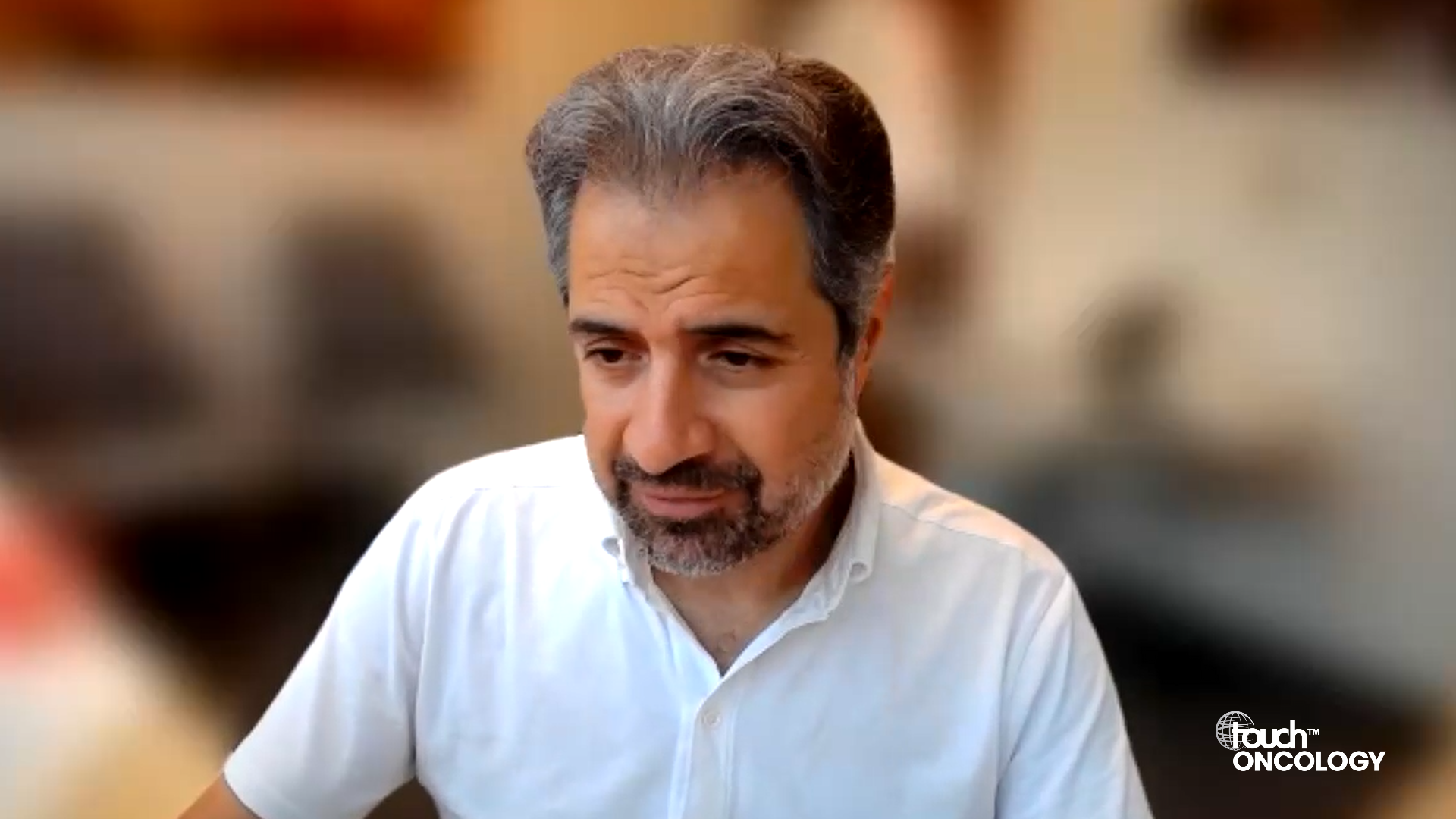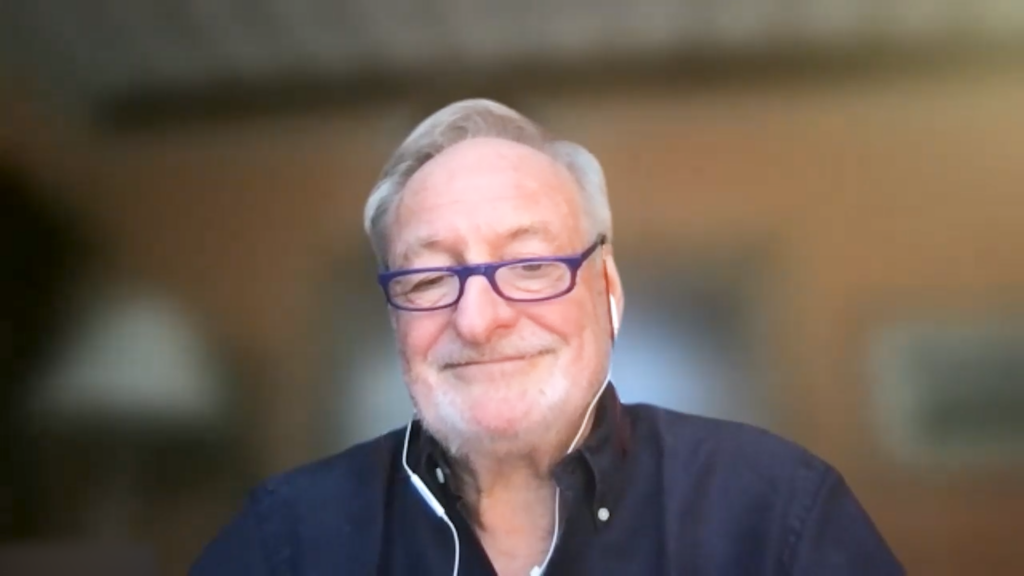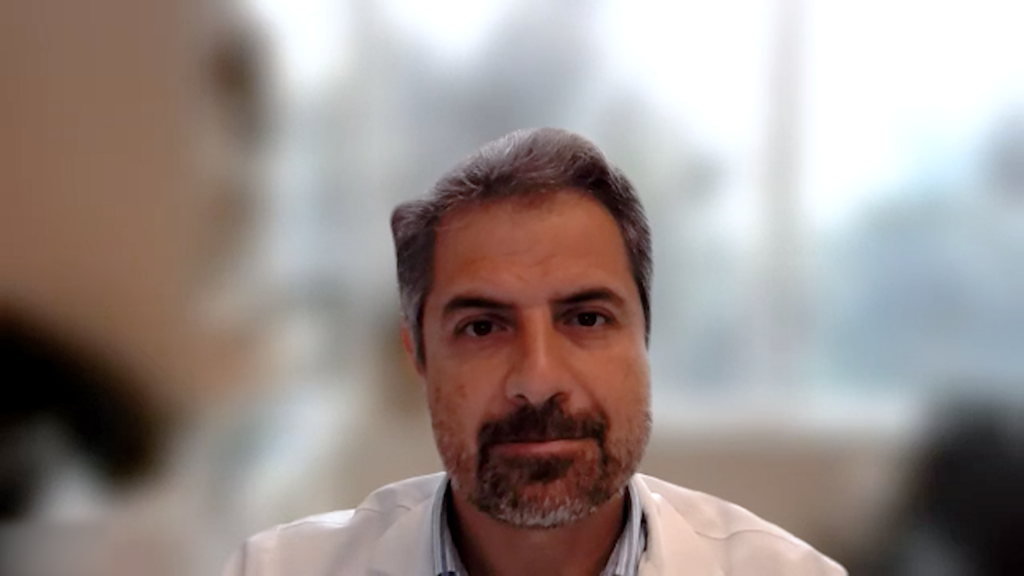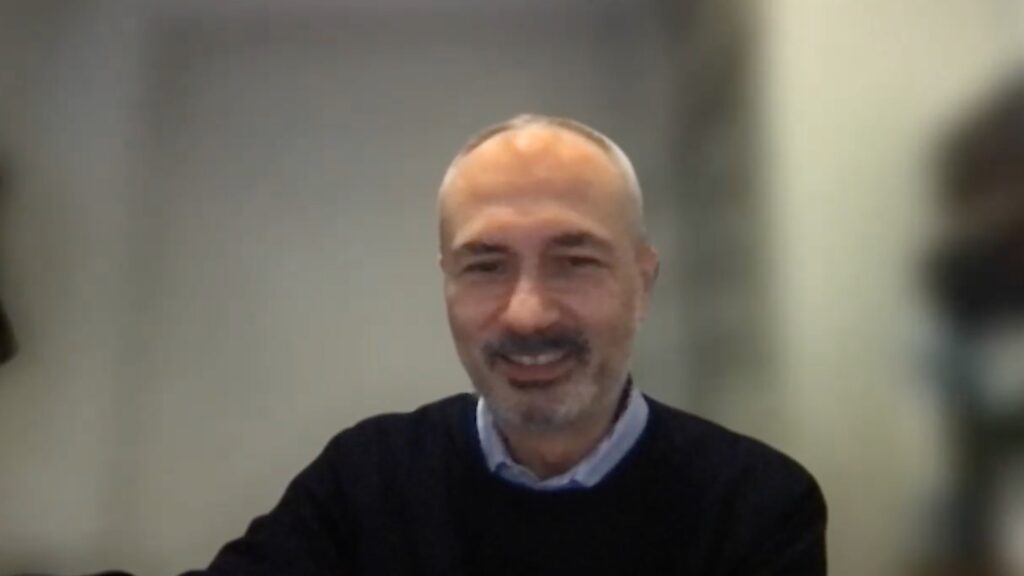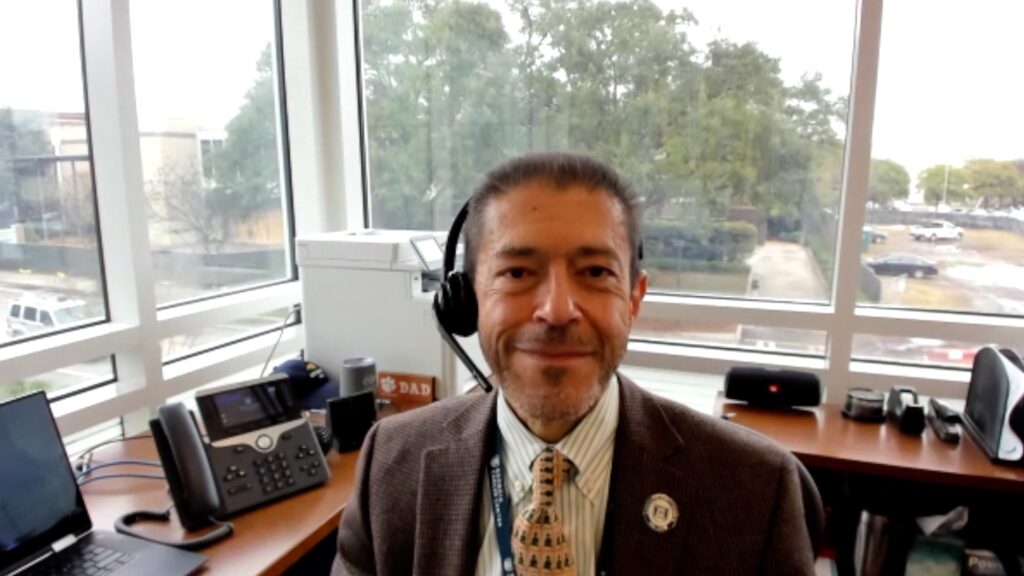The management of patients with Philadelphia-positive acute lymphoblastic leukaemia (Ph+ ALL) has evolved over the last few decades, with new and exciting treatments becoming increasingly available. We caught up with Prof Robin Foà (Sapienza University, Rome, Italy) to discuss the history of Ph+ ALL research and top trials in the treatment of Ph+ ALL.
The presentation entitled ‘José Carreras Award: Ph+ ALL, from the worst malignancy to a chemo/transplant-free management?’ (Presentation #p200-3) was presented at the EHA 2023 Congress, 8–11 and 14–15 June 2023.
Questions:
- Could you tell us a little bit about the history of Philadelphia-positive acute lymphoblastic leukaemia (Ph+ ALL) research and how patient management has improved over the last few decades? (0:13)
- What are the most exciting new developments and top trials in the treatment of Ph+ ALL? (1:25)
Disclosures: Robin Foà has nothing to disclose in relation to this video.
Support: Interview and filming supported by Touch Medical Media. Interview conducted by Atiya Henry.
Filmed as a highlight of EHA 2023.
Transcript
I’m Robin Foà. I am Emeritus Professor at the Sapienza University in Rome, Italy.
Could you tell us a little bit about the history of Philadelphia-positive acute lymphoblastic leukaemia (Ph+ ALL) research and how patient management has improved over the last few decades? (0:13)
So, Philadelphia-positive ALL, we can say that before the advent of the TKIs, the tyrosine kinase inhibitors, this was the worst haematological malignancy in terms of prognosis, and as I often used to tell the students I’ve talked to, probably was the worst cancer in absolute terms, because the prognosis without treatment was dismal. The only chance in the old days was an allogeneic transplant. And for many reasons, the first of all, because many patients are elderly, but this lesion is the most frequent adult genetic subgroup of ALL, obviously, and it increases with age. So as you get older, the likelihood of getting intensive chemo and the transplant becomes very low. And that is why they did so poorly. To an extent, in fact, that many elderly patients were offered only palliative treatment because they couldn’t undergo what I just said. So it was a real and very unfavorable diagnosis when this was made.
What are the most exciting new developments and top trials in the treatment of Ph+ ALL? (1:25)
Before I mentioned that it was a pre-TKI era. So the major change has been the advent of tyrosine kinase inhibitors that have been moved from chronic myeloid leukaemia to Philadelphia-positive ALL and the genetic lesion is more or less the same. So this started many years ago, and in fact, I’m happy to say that we were about the first to start, not about, without about, were the first to start treating elderly patients frontline or first-line treatment with no chemotherapy at all, just giving the first TKI available that in those days was imatinib. And our first study, which was run by the GIMEMA multicenter national protocol in Italy, was based in induction giving only imatinib and steroids. You had to diagnose the BCR-ABL too within one week from diagnosis and give that week of steroids, and then we gave imatinib, And therefore, ethically acceptable for what I said earlier that many of these patients were only given palliative treatment because of their age and comorbidities. So that was the first study, and it started in the year 2000, about 23 years ago. And that study, which was published in Blood, showed that virtually all patients, despite age, these were patients over the age of 60, and, if I remember well, the oldest patient was 89. All patients went under remission with a TKI plus steroid, and so that was a real change. That changed, a game changer. And from that onwards, our group continued from then to today, we never gave systemic chemo induction, only a TKI plus steroid, imatinib, dasatinib, ponatinib, we tried them all, and the results have all been published. So that has been the major change. And then in the last study which we’ll discuss, I guess, in more detail, in the next questions, we consolidated induction with a TKI with immunotherapy. And that is a second game changer in the management of Philadelphia-positive ALL, and we’ll come back to that.
Subtitles and transcript are autogenerated


